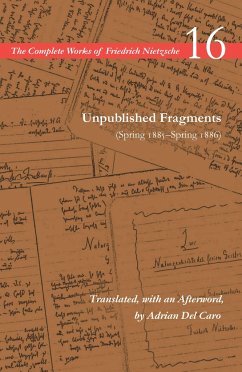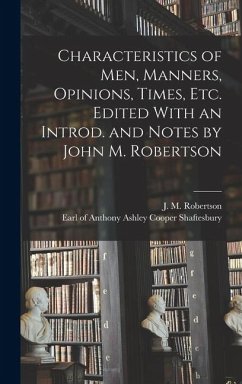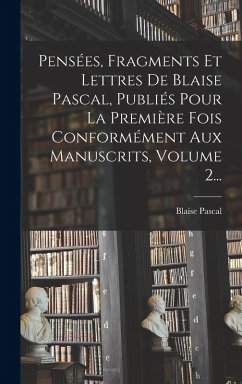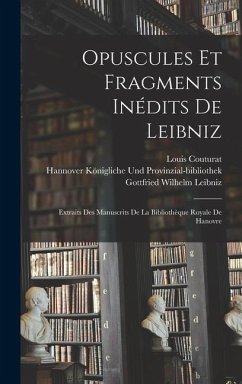
Notes and Fragments
Versandkostenfrei!
Versandfertig in 1-2 Wochen
200,99 €
inkl. MwSt.
Weitere Ausgaben:

PAYBACK Punkte
100 °P sammeln!
Short description/annotationProvides the first ever extensive translation of the notes and fragments that survived Kant's death.Main descriptionThis volume provides the first ever extensive translation of the notes and fragments that survived Kant's death in 1804. These include marginalia, lecture notes, and sketches and drafts for his published works. They are important as an indispensable resource for understanding Kant's intellectual development and published works, casting new light on Kant's conception of his own philosophical methods and his relations to his predecessors, as well as on c...
Short description/annotation
Provides the first ever extensive translation of the notes and fragments that survived Kant's death.
Main description
This volume provides the first ever extensive translation of the notes and fragments that survived Kant's death in 1804. These include marginalia, lecture notes, and sketches and drafts for his published works. They are important as an indispensable resource for understanding Kant's intellectual development and published works, casting new light on Kant's conception of his own philosophical methods and his relations to his predecessors, as well as on central doctrines of his work such as the theory of space, time and categories, the refutations of skepticism and metaphysical dogmatism, the theory of the value of freedom and the possibility of free will, the conception of God, the theory of beauty, and much more.
Table of contents:
1. Notes on the Observations on the Feeling of the Beautiful and Sublime; 2. Notes on logic; 3. Notes on metaphysics; 4. Notes on moral philosophy; 5. Notes on aesthetics.
Provides the first ever extensive translation of the notes and fragments that survived Kant's death.
Main description
This volume provides the first ever extensive translation of the notes and fragments that survived Kant's death in 1804. These include marginalia, lecture notes, and sketches and drafts for his published works. They are important as an indispensable resource for understanding Kant's intellectual development and published works, casting new light on Kant's conception of his own philosophical methods and his relations to his predecessors, as well as on central doctrines of his work such as the theory of space, time and categories, the refutations of skepticism and metaphysical dogmatism, the theory of the value of freedom and the possibility of free will, the conception of God, the theory of beauty, and much more.
Table of contents:
1. Notes on the Observations on the Feeling of the Beautiful and Sublime; 2. Notes on logic; 3. Notes on metaphysics; 4. Notes on moral philosophy; 5. Notes on aesthetics.















